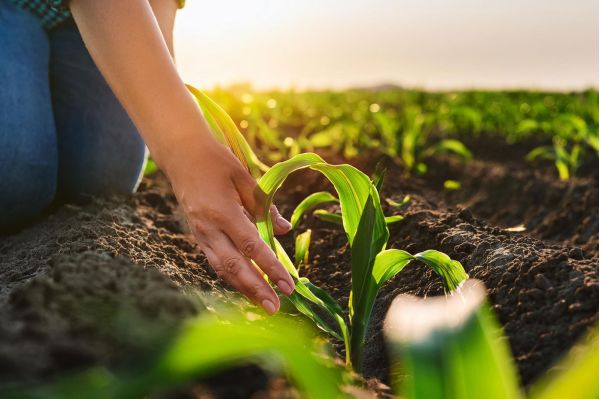Bioeconomy policy Changes required to develop the sector

The project is called CoBioEcon (www.cobioecon.com) and the first task for those involved is to understand what needs to change in bioeconomy policy in order to develop the sector. Findings suggest that the European and Irish bioeconomy is research-led and this has resulted in less focus on rural development, little public consultation, and the absence of key stakeholders, such as farmers, in bioeconomy decision-making. More generally, it was found that international collaboration needs to be improved, while government needs to address the conflicts which will inevitably emerge as the bioeconomy develops, particularly around land use and what land should be used to do what.
Finally, we need to develop what we mean by economic, environmental and social sustainability and how this is related to the bioeconomy. This policy development is important to ensure we develop strategies on poverty, inequality, public health and climate impacts. In other words, it is important that we think about, and establish safeguards for, the negative consequences of transitioning to the bioeconomy.
What is the bioeconomy?
The bioeconomy means using renewable biological resources from land and sea, like crops, forests, fish, animals and micro-organisms to produce food, materials and energy. Source: EU bioeconomy strategy.
Farmers should lead
In Ireland, and Europe more generally, the bioeconomy is led by academics but this is not sustainable. Since the production of food, fisheries and forestry are the chief contributors to the bioeconomy, it is essential that primary producers, such as farmers, are not only included, but are among the leaders of the bioeconomy. Otherwise, the bioeconomy isn’t going to work! The bioeconomy should move beyond research and become more market-orientated, and we need primary producers for this happen. How can this be achieved? Intermediary actors should be employed to help excluded groups access the bioeconomy network and should be incentivised to do so. Speaking of incentives, bio-based products should receive tax breaks and be prioritised for public procurement. We need to get the bioeconomy up and running.
Collaboration
Moving towards the bioeconomy is a huge challenge. We’re moving from a fossil-fuelled economy to a renewable-based economy, and we can’t do this without everyone on board. This goes for all industries, all government departments, and all interest groups, whether it’s the farmer, the climate change activist, or members of the community. Particularly regarding policy, industry and value chains, we must align policy with financial incentives and funding schemes. And we can’t do this on our own, we need our European partners. EU countries should work together on creating a specific and mandated internationally coordinated system for the bioeconomy. International regional networks can drive international cooperation more effectively than centralised approaches.
Good governance
It’s important to emphasise how markets alone will not be able to transition to the bioeconomy in a sustainable manner. Strong government organisation and participation is needed to help reduce our reliance on fossil fuels. A major challenge is the limited supply and inefficient use of biomass and arable land, which could raise concerns about sustainability and increase costs. Growing demand for bio-based products may lead to conflicts over land use and sustainability goals, such as food and energy security. Addressing these conflicts is crucial. The shift to biomass production can displace traditional land uses, and there will be conflicts between food and non-food biomass production. Using marginal land and assessing resource efficiency can help address these challenges, but it is important to avoid soil degradation and deforestation. Defining and economically classifying marginal land for biomass production is essential but currently is omitted in Irish and EU policy. Tools to evaluate the economic viability of land for biomass are needed. For example, using landfill sites for biomass energy has potential, but requires proper evaluation. Overall, EU and national policies need to improve understanding and awareness of the bioeconomy, ensure policy coherence, and continually assess regulations. Ireland supports bioeconomy development but relies too much on self-regulation and private standards. This approach needs to change urgently to achieve positive outcomes.
Safeguarding sustainability
Despite how the bioeconomy is presented in European and Irish policy, bioeconomy development is not automatically sustainable. Society needs to make it sustainable. While there is some focus on environmental sustainability in bioeconomy policy, economic and social sustainability are less clearly addressed. This is because policy mainly focuses on industry, emphasising competition, innovation and economic growth but neglecting sustainable resource management and operational strategies for a sustainable bioeconomy. Most sustainability assessments in these policies are about things like measuring greenhouse gas emissions and following ecological conservation laws. However, they miss important social aspects, such as land rights or the social impact of biomass production. In Irish policy. less attention is given to the potential risks associated with bioeconomy and how we should deal with these risks – risks such as increases in poverty and inequality, adverse public health impacts and the exacerbation of climate change. Overall, while sustainability is often mentioned in EU and Irish bioeconomy policies, it is vaguely defined. This vagueness shows an underdeveloped policy approach. Policymakers need to better describe how the bioeconomy supports sustainability. Linking the bioeconomy to the UN’s Sustainable Development Goals (SDGs) could help clarify this.
The next task in the CoBioEcon project will be investigating the various barriers, but also the opportunities, that agri-food practitioners see in relation to developing the bioeconomy in Ireland. Findings are based on in-depth interviews. As previously mentioned, all these findings will go towards co-developing a regional strategy for the bioeconomy.
Get in touch
If you want to be part of developing this strategy, you can contact the researchers for more information here: www.cobioecon.com.





